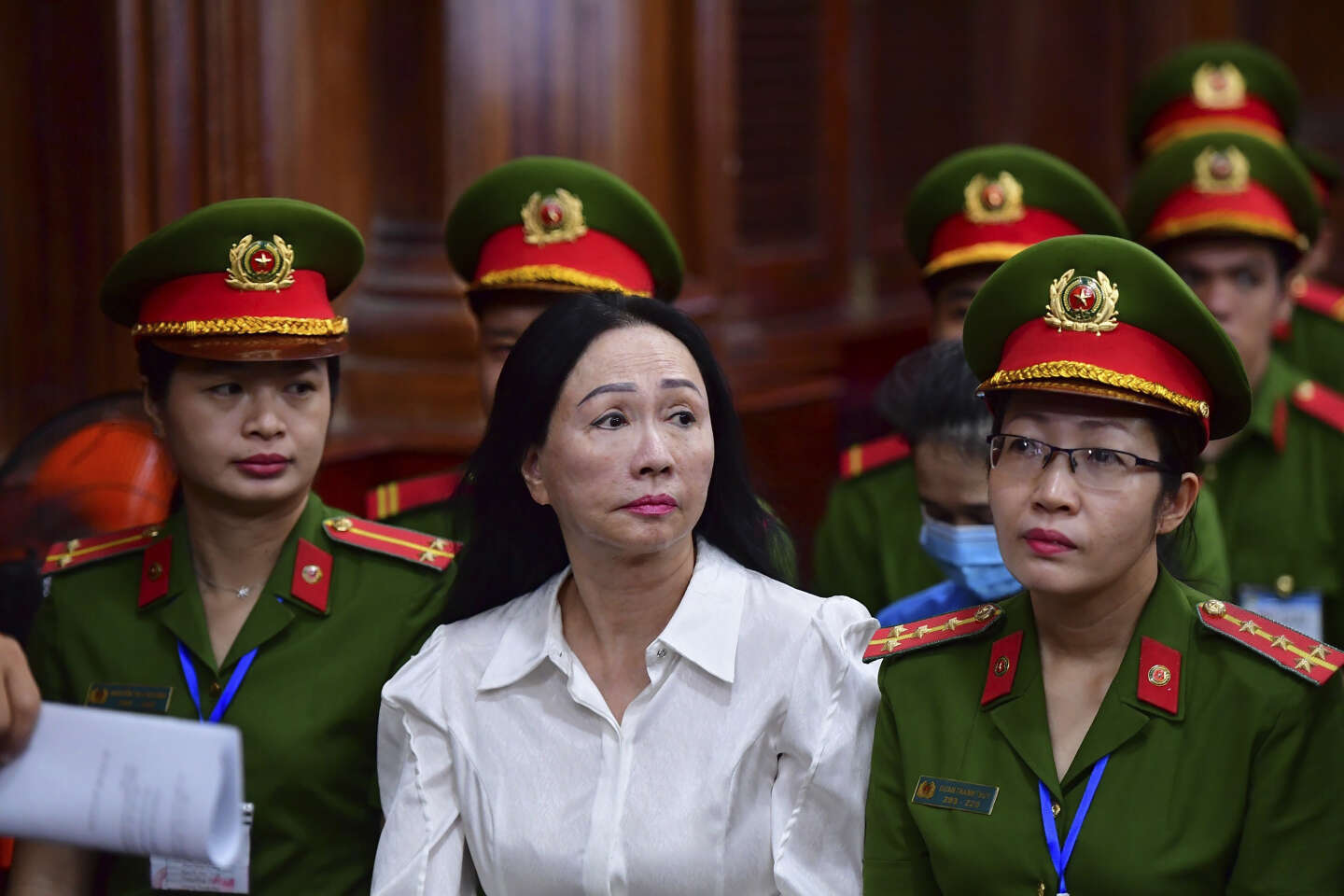


In Ho Chi Minh City, the "trial of the century," in which over 80 defendants have been on trial since early March for a range of crimes linked to money fraud, ended with a spectacular verdict: 67-year-old Truong My Lan, the wealthy real estate boss at the heart of a massive fraud scheme, was sentenced to death on Thursday, April 11 for "embezzlement," as well as "corruption and violation of banking rules." The Chinese-born Saigonese woman headed a private real estate group, Van Thinh Phat, associated with the most prestigious hotel and office tower projects in the city. Ho Chi Minh City is reputed to be more liberal but is closely watched by the capital, Hanoi, the heart of Communist power.
Truong, who has appealed her verdict, is accused of having financed her business by shamelessly dipping into the coffers of Saigon Commercial Bank (SCB), a private bank which granted illegal loans to shell companies, in defiance of management rules. Her arrest in October 2022 caused a banking panic, and SCB was placed under the control of the Central Bank.
The sums involved are astronomical: The embezzlement involves the equivalent of €11.6 billion, or almost 3% of the country's GDP. The judges have ordered Truong My Lan to repay €25 billion. All her assets will be subject to liquidation proceedings. She is also expected to appear in another lawsuit brought on behalf of the 42,000 clients who invested in fraudulent financial products offered by SCB.
Other defendants include her husband, Hong Kong tycoon Eric Chu Nap Kee, sentenced to nine years in prison, and a Central Bank of Vietnam inspector, sentenced to life imprisonment for pocketing the equivalent of €4.8 million in kickbacks. The court criticized the auditing giants for failing to identify the fraudulent system behind Van Thinh Phat's real estate empire.
Brutal power struggles within the party
At the trial, Truong My Lan recalled that she had been asked in 2011 by the country's state-owned bank to participate in the merger of three troubled local banks by mortgaging her five-star hotel, the Windsor Plaza. When the new Saigon Commercial Bank was created in 2012, it held on paper 5%> of its assets, the maximum permitted by law for a private investor. In reality, a complex system of shell companies and nominees uncovered by the investigation subsequently enabled it to indirectly control 91.5% and force a management at its beck and call to grant nearly 2,500 fraudulent loans to countless companies under its control.
The former real estate queen did not express remorse, but she said say she regretted having become involved in the banking sector, as she "didn't understand its mechanisms." Her death sentence adds a new dimension to the anti-corruption campaign waged since 2016 by the General Secretary of the Vietnamese Communist Party and the country's real number one, Nguyen Phu Trong, in power since 2011: dubbed the "blazing furnace," it has brought down several of the country's most prominent bigwigs. In their wake, four of Vietnam's most senior executives – two presidents and two vice-prime ministers – have been sacked since 2022 for letting it happen.
You have 28.32% of this article left to read. The rest is for subscribers only.
